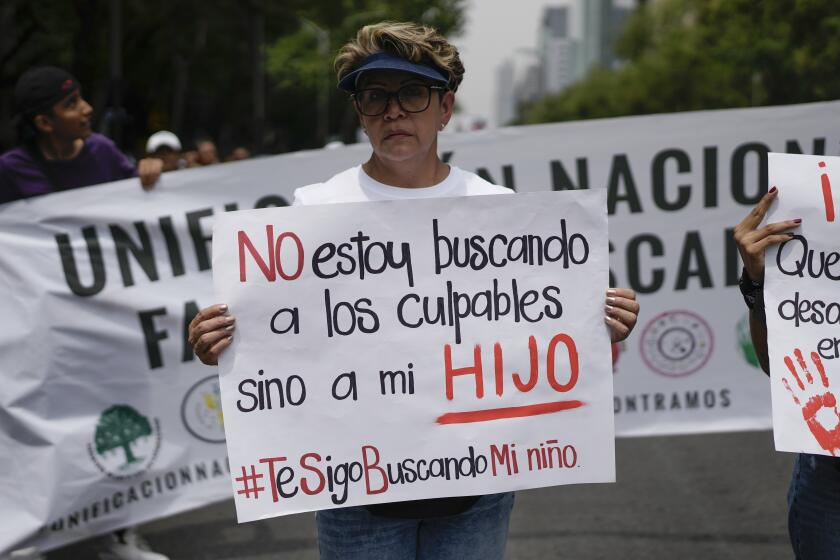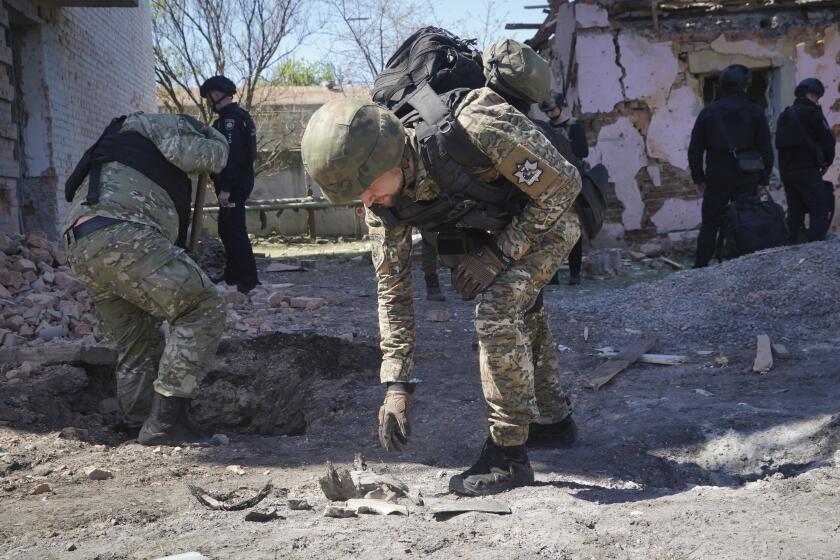Dispute Centers on Reading of Geneva Convention
President Bush on Friday pushed for passage of his military tribunals bill, asking Congress to clarify the meaning of the Geneva Convention to allow the CIA to continue detaining and interrogating prisoners under a formerly secret program. The issue has grown more divisive between Bush and other Republicans.
Question: What are the similarities and differences between the president’s proposal and the one supported by Sen. John McCain?
Answer: Both would set up special courts known as military commissions to try detainees. The bill supported by McCain, several other Republicans and many Democrats would give detainees greater legal rights, including more rights to see evidence used against them, than Bush’s proposal.
The main difference has to do with how each of the bills would apply the Geneva Convention -- in particular the provision known as Common Article 3. McCain’s bill would apply the protections without interpreting them, whereas Bush’s proposal would “clarify” them in a way that could give the CIA greater latitude in the way it treats detainees.
Q: What is Common Article 3?
A: It is a provision of the treaty that provides a minimum level of protection for any fighter involved in a civil war and for unlawful combatants -- such as terrorists or insurgents -- in all conflicts.
Q: The president contends Common Article 3 is vague. Is it?
A: Common Article 3 bans “outrages upon personal dignity, in particular humiliating and degrading treatment.” Bush says it is subject to interpretation. However, international law experts say the article is not vague -- at least no more so than any other law or treaty. Fifty years of case law and commentary define the article, and many military lawyers say they have a good idea of what is allowed and what isn’t.
Q: Why does the president say that the CIA detention and interrogation program could not continue without redefining Common Article 3?
A: It depends on what the CIA does while detaining and interrogating prisoners, and few people outside the agency know with certainty what they do. Some experts on Geneva say there are many tough tactics -- such as “stress positions” that cause discomfort, or limited sensory deprivation -- that have recently been banned by the U.S. military but not by the CIA. Some of those tactics may not violate Common Article 3. But tactics causing unbearable pain to break prisoners would violate Common Article 3.
Q: Is “water-boarding” -- a method that makes prisoners feel as though they are drowning -- allowable under Common Article 3?
A: No.
Q: Does the CIA use water-boarding?
A: The CIA has used water-boarding as an interrogation tactic, U.S. officials have said.
Q: Does it still use water-boarding?
A: The agency won’t answer the question -- which could mean that it still does, or that it wants terrorists to think it still does. The U.S. government, which considers simulated drowning a form of torture, has said the military will not use the tactic. But that ban explicitly leaves out the CIA.
Q: Do these bills spell out which tactics can and can’t be used during interrogations?
A: No, not specifically. They mainly define how much latitude interrogators have, and how closely they must observe the Geneva Convention’s terms.
Q: Administration officials say that if the McCain bill passes, CIA interrogators will be subjected to civil suits and prosecution for violating Common Article 3. Will they?
A: McCain’s bill bans civil suits based on the Geneva Convention. It also offers other protections from criminal prosecution, by saying that U.S. forces can be prosecuted only for a “grave breach” of Common Article 3, including torture, murder, and “cruel, inhumane and degrading treatment.” Administration lawyers want better retroactive protections for interrogators and more coverage in international courts. They say they can only get that by clarifying the meaning of the convention.
Q: Critics of the president’s plan have said that redefining Geneva would put U.S. troops at risk. Has Common Article 3 ever protected an American service member?
A: Yes. In 1993, the United States invoked Common Article 3 protections for Chief Warrant Officer Michael J. Durant, who was captured by Somali warlords. Because he was not the prisoner of a government and because Somalia was embroiled in a civil war, traditional Geneva prisoner-of-war protections did not apply. Although Durant had been roughly treated initially, the militants ultimately decided to observe Common Article 3 and allowed the Red Cross to visit Durant.
Q: Would Common Article 3 protect U.S. forces in current conflicts?
A: Yes. Common Article 3 would protect a U.S. soldier captured by a rebel group in Afghanistan, the Philippines or Colombia -- if the captors observed it.
More to Read
Start your day right
Sign up for Essential California for news, features and recommendations from the L.A. Times and beyond in your inbox six days a week.
You may occasionally receive promotional content from the Los Angeles Times.






